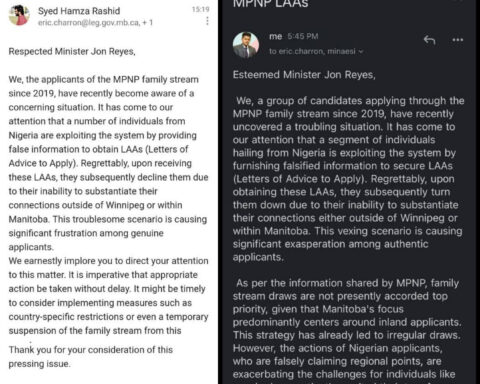Canada should take full advantage of the visit to Canada by Indian Prime Minister Narendra Modi, a political rock star who is arguably the most important Indian leader in a generation.
Modi will be visiting Ottawa, Toronto and Vancouver from April 14 to 16 for what is, remarkably, the first bilateral visit of an Indian prime minister since Indira Gandhi’s trip in 1973. The 8,000 tickets for an event at the Ricoh Coliseum in Toronto are expected to be heavily oversubscribed.
The 64-year-old Modi is a complex, charismatic and controversial figure. Last spring, 550 million Indian voters went to the polls in the largest free election in history, and handed him and his BJP party — the longtime opposition party — the country’s first majority government in 30 years.
Modi came to prominence as the hugely successful Chief Minister of Gujarat, a state of 63 million northwest of Mumbai on the Arabian Sea and the source of many immigrants to Canada. Modi was widely criticized for the role he played in riots in the state in 2002, which led to the deaths of more than 1,000 people, most of them Muslim. Significantly, the United States and Britain have denied Modi a visa, but Canada did not.
After a series of weak, scandal-ridden minority governments, Modi appears to be on his way to restoring India’s credibility as a dynamic, fast-growing emerging economy.
The backdrop for the visit is positive. Since the end of the decades-long bilateral chill over the nuclear issue in 2010 with the conclusion of a Nuclear Cooperation Agreement, the relationship between the two countries has been strong, bolstered by an influential diaspora of more than a million, largely split between Toronto and Vancouver.
India is a priority market under Canada’s Global Markets Action Plan and can look to Canada for much of what it so desperately needs: food security, energy security, infrastructure, and education and skills development. After a series of weak, scandal-ridden minority governments, Modi appears to be on his way to restoring India’s credibility as a dynamic, fast-growing emerging economy.
There is no better way to get things done than through the meeting of top leaders, as shown by the example of Modi and President Barack Obama. Last September, Modi visited New York, where he got a rapturous welcome from 18,000 Indo-Americans at Madison Square Garden, and then met the president in Washington.
The Indian PM then boldly invited Obama to be the first president to be the principal guest at the Republic Day celebrations in New Delhi in January 2015. As a result of these back-to-back meetings, India and the U.S. are moving ahead on a whole range of issues, including regional security, defence, nuclear power, smart cities, and even climate change.
Time for Harper to Move Things Forward
What can Prime Minister Stephen Harper hope to gain from Narendra Modi? Canada and India have been negotiating a Comprehensive Economic Partnership Agreement (CEPA) since 2010, and the 2013 deadline has long passed.
This writer was told in January by a senior official in India’s Commerce Ministry that two more sessions — on services and on the troublesome issue of temporary visas for professionals — would probably be enough to lead to an agreement.
A CEPA would send a message to Canadian business that India is a market worth taking seriously. With the ninth round of negotiations recently completed, Harper should press for a rapid conclusion. A CEPA would deliver economic benefits and would have symbolic appeal, and send a message to Canadian business that India is a market worth taking seriously.
India and the U.S. made progress on nuclear co-operation for peaceful purposes, despite the thorny issue of liability, so there is no reason Canada can’t do the same.
Ottawa should also press India to ratify the Foreign Investment Promotion and Protection Agreement the two countries signed in 2009.
Canada would gain from further agreement on energy, given that Canada has so much to offer right across the energy spectrum, from smart grid, to oilfield services to clean energy.
India and the U.S. made progress on nuclear co-operation for peaceful purposes, despite the thorny issue of liability, so there is no reason Canada can’t do the same.
For the first time in more than 40 years, Canada is poised to host not only an Indian Prime Minister, but one who is favourably disposed toward Canada and famous for making things happen. Canada should take full advantage of this rare and timely opportunity.
Douglas Goold is a research consultant for the Asia Pacific Foundation of Canada. He recently conducted more than 30 interviews in India and Canada for a study on Canadian companies in India, which will soon be published by the Foundation.
Published in partnership with Asian Pacific Post.




